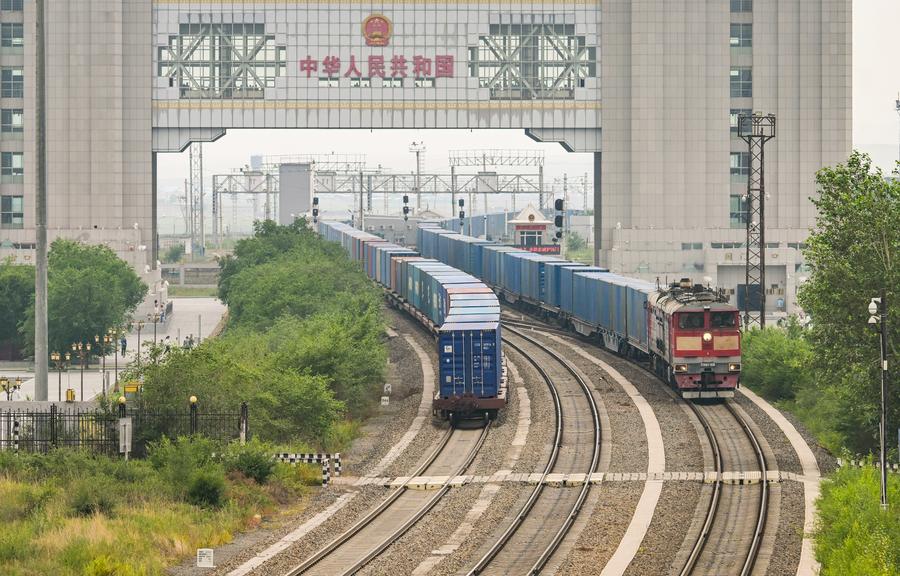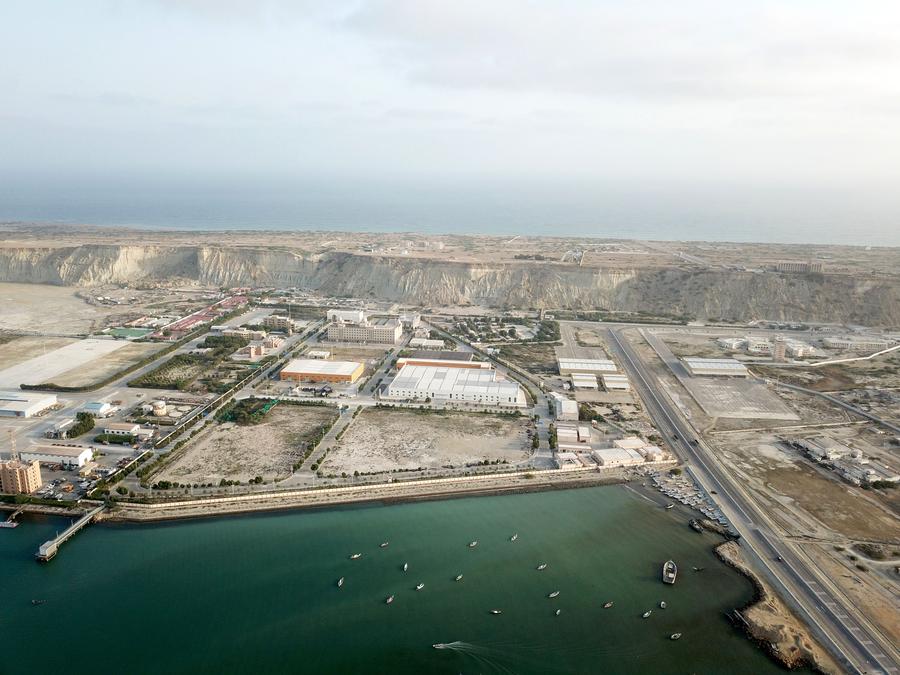A drone photo taken on July 17, 2024 shows two China-Europe freight trains running through the Manzhouli railway port in Manzhouli, north China's Inner Mongolia Autonomous Region. (Xinhua/Li He)
XI'AN, Oct. 15 (Xinhua) -- A think tank report released on Tuesday calls on Belt and Road Initiative (BRI) partner countries to join hands and tap into new opportunities for Belt and Road cooperation in the future.
The report, titled "'Eight Major Steps' Heralds Promising New Decade of Belt and Road Cooperation," was released here by Xinhua Institute, a think tank affiliated with Xinhua News Agency, at the Belt and Road Forum for International Think Tank Cooperation & the Second Silk Road (Xi'an) International Communication Forum.
The eight major steps, announced by China in October 2023, encompass building a multidimensional Belt and Road connectivity network, supporting an open world economy, carrying out practical cooperation, promoting green development, advancing sci-tech innovation, supporting people-to-people exchanges, promoting integrity-based Belt and Road cooperation, and strengthening the institutional building for international Belt and Road cooperation.
The report, consisting of three chapters, examines the "remarkable results" of the eight major steps over the past year, which have laid "a solid foundation for the second decade of the BRI."
Since the eight major steps were proposed last year, landmark connectivity projects under the BRI, including the China-Europe Railway Express and the Trans-Caspian International Transport Corridor, have made steady progress, with their economic and social impacts becoming increasingly evident, significantly contributing to the modernization of partner countries, according to the report.
Ongoing cooperation in green infrastructure, green energy and green transportation has become a key focus of the eight initiatives, said the document, adding that the Digital Silk Road is experiencing rapid growth in digital service trade and e-commerce.
An aerial drone photo taken on Sept. 15, 2024 shows a view of free zone area of the Gwadar port in Gwadar, southwest Pakistan. (Xinhua/Ahmad Kamal)
Xinhua Institute found that the eight major steps have brought new opportunities for the high-quality development of the Belt and Road cooperation.
In its second decade, the BRI is expected to see higher levels of cooperation, greater investment returns, improved supply quality and enhanced development resilience. The BRI has the potential to become a cornerstone in the construction of an open world economy, a driving force for collective development and an accelerator of global modernization.
The BRI cooperation is also expected to cultivate new growth points through new quality productive forces, and to unleash the potential of BRI partner countries while supporting their long-term, stable growth.
Meanwhile, the report stresses consolidating practical cooperation, fostering innovation-driven growth, strengthening risk management, and improving cooperation mechanisms.
To implement the eight proposals in the future, it underlines the need to develop new quality productive forces with a focus on green and digital growth while expanding cooperation in emerging fields.
Xinhua Institute noted that the successful implementation of the eight major steps will require deepening solidarity and cooperation to jointly address external risks and build stronger internal consensus among BRI partner countries.
The report calls on BRI partner countries to remain vigilant against systemic negative propaganda promoted by certain countries, such as false narratives that label the BRI as a "debt trap," "neocolonialism," or a form of "systemic export," which aims to undermine and tarnish the initiative's image.






 A single purchase
A single purchase









